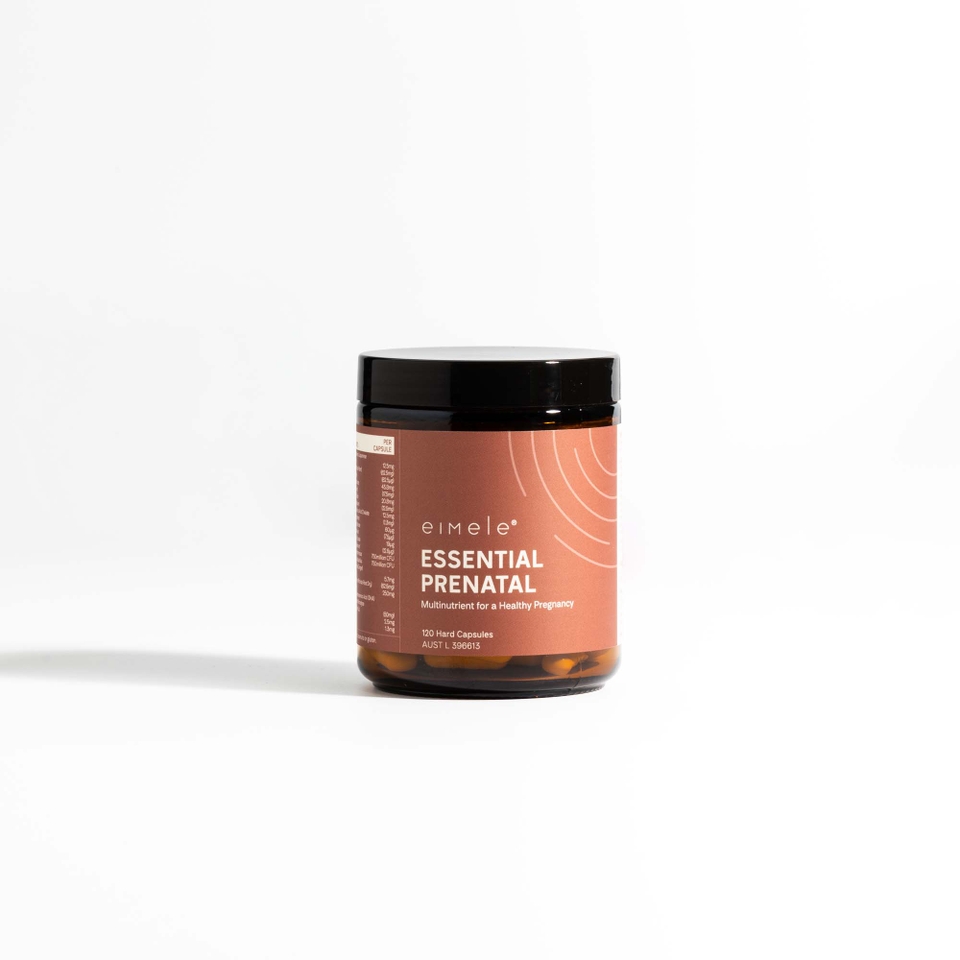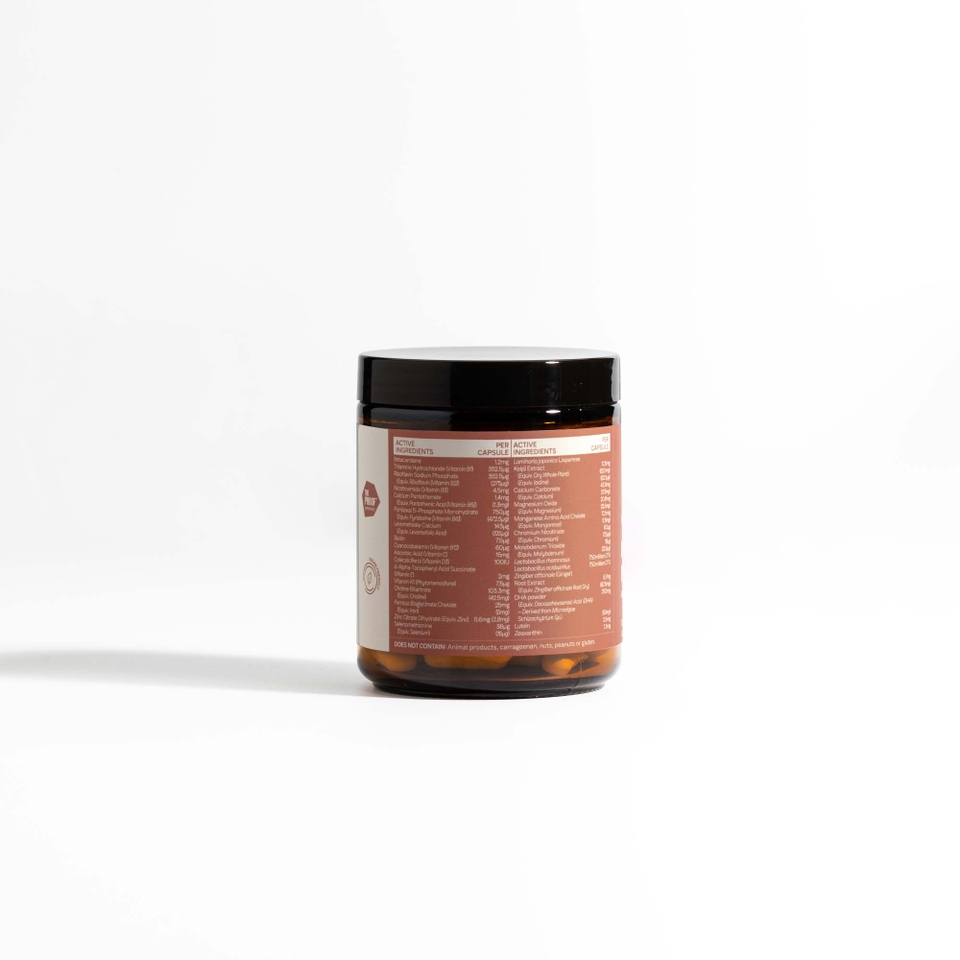
folate
What is folate?
Folate, also known as vitamin B9, is a B vitamin that is essential for DNA production, cell division, and the formation of new red blood cells. All B vitamins, including B9, are required for the conversion of food into fuel, helping to break down carbohydrates, fats and proteins for energy.[1] The energy acquired from the healthy metabolism of foods gives the body energy to support growth and cell division.[2]
Folate can be found in several forms, including folic acid, 5-MTHF, and levomefolate calcium or “activated folate”.
Why is folate so important in pregnancy?
A growing foetus requires enough folate for the healthy division of cells, DNA and the creation of new red blood cells.[1]
Of course, folate is also widely researched and used in pregnancy to reduce the risk of neural tube defects such as spina bifida which is causally linked to folate deficiency.[3]
The source
Levomefolate calcium is the source of folate used in Essential Prenatal (not to be confused with calcium). This form of folate has been chosen for its high bioavailability.
Optimal dosage
It’s essential to consider your individual needs (i.e. diet, currently pregnant or breastfeeding, health conditions and risks, medication, etc.) when considering how much folate you should be getting. We recommend following the government guidelines outlined in the Recommended Daily Intake (RDI).
Recommended Daily Intake
The RDI below is a good guideline - aim for this amount or higher by eating folate-rich foods and including a supplement where necessary.
Women 19-70+ years 400 micrograms/day
Pregnancy 14-50 years 600 micrograms/day
Lactation 14-50 years 500 micrograms/day.[4]
Why do you need to supplement folate?
If your diet is low in folate, it may be necessary to supplement to ensure you meet your RDI - especially if you are trying to conceive or are currently pregnant or breastfeeding.
Folate is abundant in green, leafy vegetables, avocados, whole grains, nuts and seeds. Not sure if you’re consuming enough folate? You can request a blood test from your GP to check your serum folate levels.
Interesting facts about folate
• The discovery of folate to prevent neural tube defects during pregnancy occurred in the 1960s.[5]
• Folate has been central to some of the biggest discoveries regarding genetics. A common mutation of a gene called MTHFR involved in the body’s processing of folate was discovered 35 years ago. In recent years, activated folate, a form of folate that can be processed regardless of genetics, has become a more common and often preferred form of folate for multi-nutrient supplements.[6]
References:
[1]. Stephenson, J., Heslehurst, N., Hall, J., Schoenaker, D.A.J.M., Hutchinson, J., Cade, J., et al. (2018). Before the beginning: Nutrition and lifestyle in the preconception period and its importance for future health. Lancet, 391(10132): 1830-1841. https://www.ncbi.nlm.nih.gov/pmc/articles/PMC6075697/
[2]. Huskisson, E., Maggini, S. & Ruf, M. (2007). The role of vitamins and minerals in energy metabolism and well-being. The Journal of International Medical Research, 35: 277-289. https://journals.sagepub.com/doi/pdf/10.1177/147323000703500301
[3]. Spina Bifida Resource Center. The role of vitamin B & folic acid in spina bifida. Updated July 2022, accessed April 2023 from https://www.spinabifida.net/cobalamin-vitamin-b12-folic-acid-deficiency-in-spina-bifida-neural-tube-defects/
[4]. Eatforhealth.gov.au. Nutrient Reference Values for Australia and New Zealand. Folate. Accessed April 2023 from https://www.eatforhealth.gov.au/nutrient-reference-values/nutrients/folate
[5]. Wald, N.J. (2011). Commentary: A brief history of folic acid in the prevention of neural tube defects. International Journal of Epidemiology, 40(5): 1154-1156. https://academic.oup.com/ije/article/40/5/1154/660590
[6]. Vidmar Golja, M., Smid, A., Kuzelicki, N.K., Trontelj, J., Kersak, K., et al. (2020). Folate insufficiency due to MTHFR deficiency is bypassed by 5-Methyltetrahydrofolate. J Clin Med, 9(9): 2836. https://www.ncbi.nlm.nih.gov/pmc/articles/PMC7564482/"

